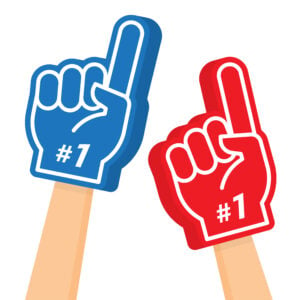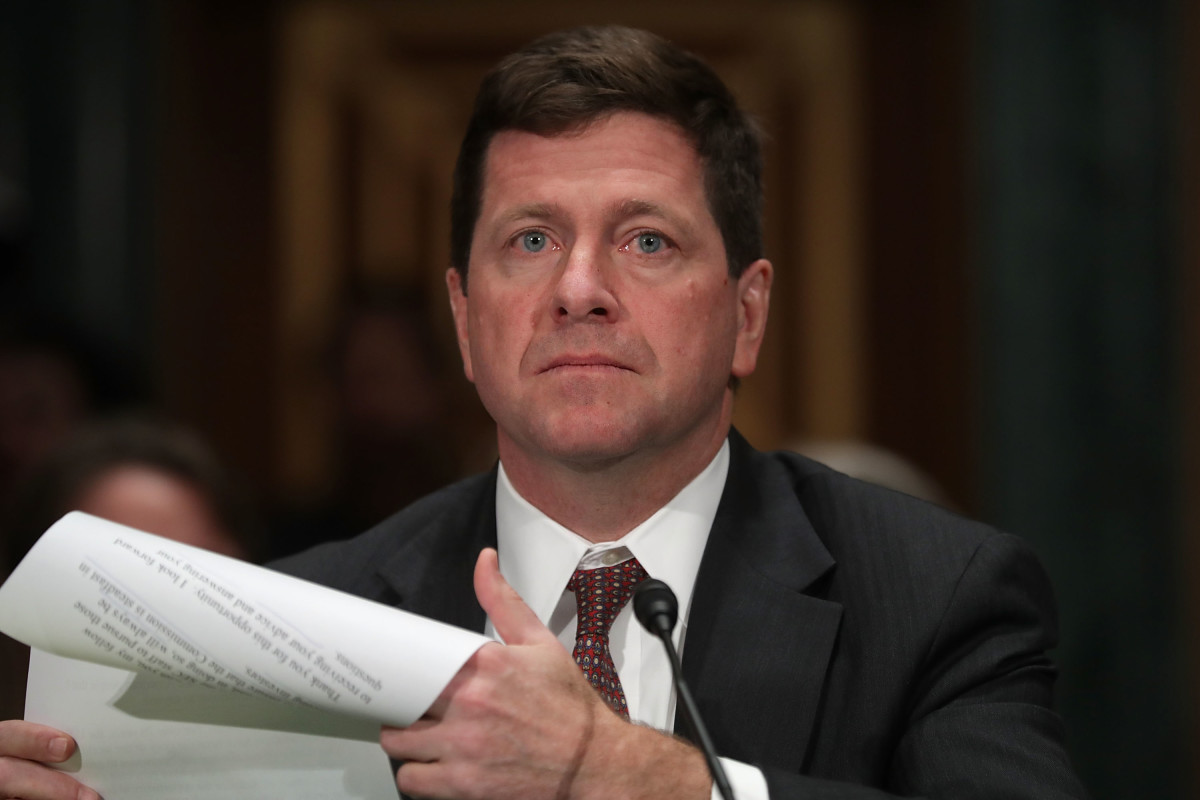DLA Piper is a ginormous firm — we’re talking 3rd highest grossing law firm in the world kinda big — and the kind that *usually* fancies themselves as having top of the market compensation. So you can’t really blame associates at the firm for kinda assuming they’d wind up paid the same amount of money as the top of Biglaw. Unfortunately for DLA Piper associates, that is not to be.
This year, associates all across Biglaw are in line for special bonuses in addition to the typical year-end bonuses. These special bonuses became all the rage among elite Biglaw firms starting in the fall, and are an extra special thank you for associates’ hard work during the pandemic. At most of the elite Biglaw firms, the special bonuses range from $7,500 to $40,000, depending on class year, and, again, are on top of the year-end bonus numbers. But it looks like DLA Piper associates are missing out.
Yesterday, management at DLA Piper held an associate town hall meeting, and announced that while they view themselves as a market leader on compensation, associates would not be getting those special bonuses. From an insider at the firm:
Today at the associate town hall, DLA made it expressly clear that no special bonuses would be provided. However, felt it was appropriate to reiterate that they view themselves not only as top end of the market compensation but as compensation leaders. Did not go over well with the associates.
Co-US Managing Partner Rick Chesley says “let me be very very clear, we are not doing a special bonus, a Covid bonus, or any other supplemental bonus.” Devastating!
To be clear, this is the most generous to the firm reaction Above the Law has gotten from tipsters, and it still refers to the firm’s decision as “disappointing”:
DLA Piper held an Associate Town Hall on the evaluation process today. Firm management today confirmed there would be no special/COVID bonuses but haven’t put anything in writing (as far as I know). The main reason cited was fiscal conservatism. Not shocking, but still disappointing given the bonus activity of peer biglaw firms.
Most reactions were downright angry, like this tipster who gloriously refers to the move as “horseshit” and says it’ll hurt the firm’s ability to recruit and retain the top talent:
We get a market bonus, but no special COVID bonus. Just a lot of words of appreciation for associates – the backbone of the firm. I am pissed. DLA is one of the top grossing firms, and we have repeatedly been told how well the firm has done this year. The firm said they’re a market leader and not a market follower, which is why we’re not getting special bonuses. Absolute horseshit. On top of that, we still have to bill 2,000 hours. DLA is being cheap, and it’ll cost them. I’m already looking to move somewhere I’m more valued.
And there were some… interesting justifications for the decision:
Firm management just had an associate-wide town hall where they broke the news that they are not providing any “special” COVID bonuses. Managing partner justified this by stating “We’re a market leader, not a market follower.”
Ummm. Leaders lead from the FRONT, not trailing up to $40K behind… just saying.
No COVID bonuses on the grounds that it is “not market”. Associates are, understandably, livid.
And there’s definitely a perception of management trying to pull a fast one, with frequent proclamations about the financial health and eliteness of the firm while not ponying up the same cash as associates could be making at other firms:
The whole thing is galling. Do they think we are stupid? Just be honest and say you don’t want to do it. We just had a firm call yesterday with management bragging about how this is the best year ever and we are outperforming all our peers. Then you say only half our “peer group” is giving special bonuses. It’s almost insulting to the intelligence. Just be honest and transparent. Because it is easy to see that all, or almost all, the firms that are our real peers are giving the special bonuses. And on the other hand they always brag about our peers being the likes of Latham. Obviously, they are cherry picking a different peer group when deciding on bonuses. So when they want to brag about how great we are, they select a peer group that is the best of the best. But when it comes to deciding bonuses, they are choosing a peer group that is much less elite in order to be cheap on bonuses. After a tough year, the lack of honesty is quite annoying. Especially when they constantly brag about how great the firm is doing financially (apparently we are up year over year and they say many of our peers are down 10-15%). Maybe if you guys lambaste them for this nonsense they will actually do what they say. If they want to be a “market leader” and pay “market bonuses”, both of which are things they said on the call, then the market is clear, it is the standard Cravath bonus scale plus special bonuses. If you do not pay special bonuses, you are way less than market for senior associates and certainly not a market leader. If you want to talk the talk then walk the walk. But they talk elite and walk below average.
It definitely stinks for those putting in the work of elite Biglaw associates but seeing significantly smaller compensation than their peers at other firms.
We depend on your tips to stay on top of important bonus updates, so when your firm matches, please text us (646-820-8477) or email us (subject line: “[Firm Name] Matches”). Please include the memo if available. You can take a photo of the memo and send it via text or email if you don’t want to forward the original PDF or Word file.
And if you’d like to sign up for ATL’s Bonus Alerts (which is the alert list we also use for all salary announcements), please scroll down and enter your email address in the box below this post. If you previously signed up for the bonus alerts, you don’t need to do anything. You’ll receive an email notification within minutes of each bonus announcement that we publish. Thanks for your help!
 Kathryn Rubino is a Senior Editor at Above the Law, and host of The Jabot podcast. AtL tipsters are the best, so please connect with her. Feel free to email her with any tips, questions, or comments and follow her on Twitter (@Kathryn1).
Kathryn Rubino is a Senior Editor at Above the Law, and host of The Jabot podcast. AtL tipsters are the best, so please connect with her. Feel free to email her with any tips, questions, or comments and follow her on Twitter (@Kathryn1).








 Ed. note: This is the latest installment in a series of posts from
Ed. note: This is the latest installment in a series of posts from 

 Kathryn Rubino is a Senior Editor at Above the Law, and host of
Kathryn Rubino is a Senior Editor at Above the Law, and host of 





 Jordan Rothman is a partner of
Jordan Rothman is a partner of